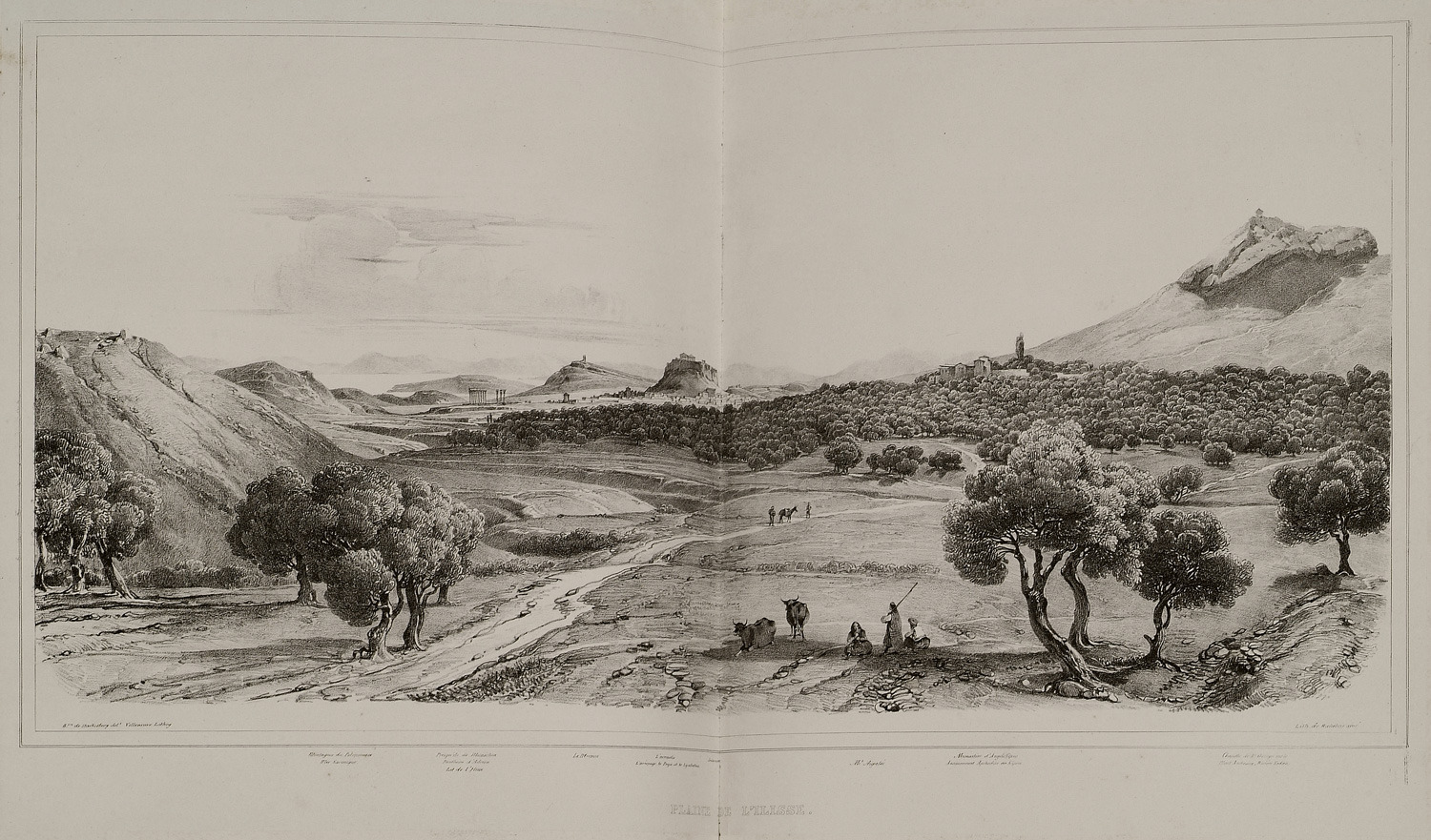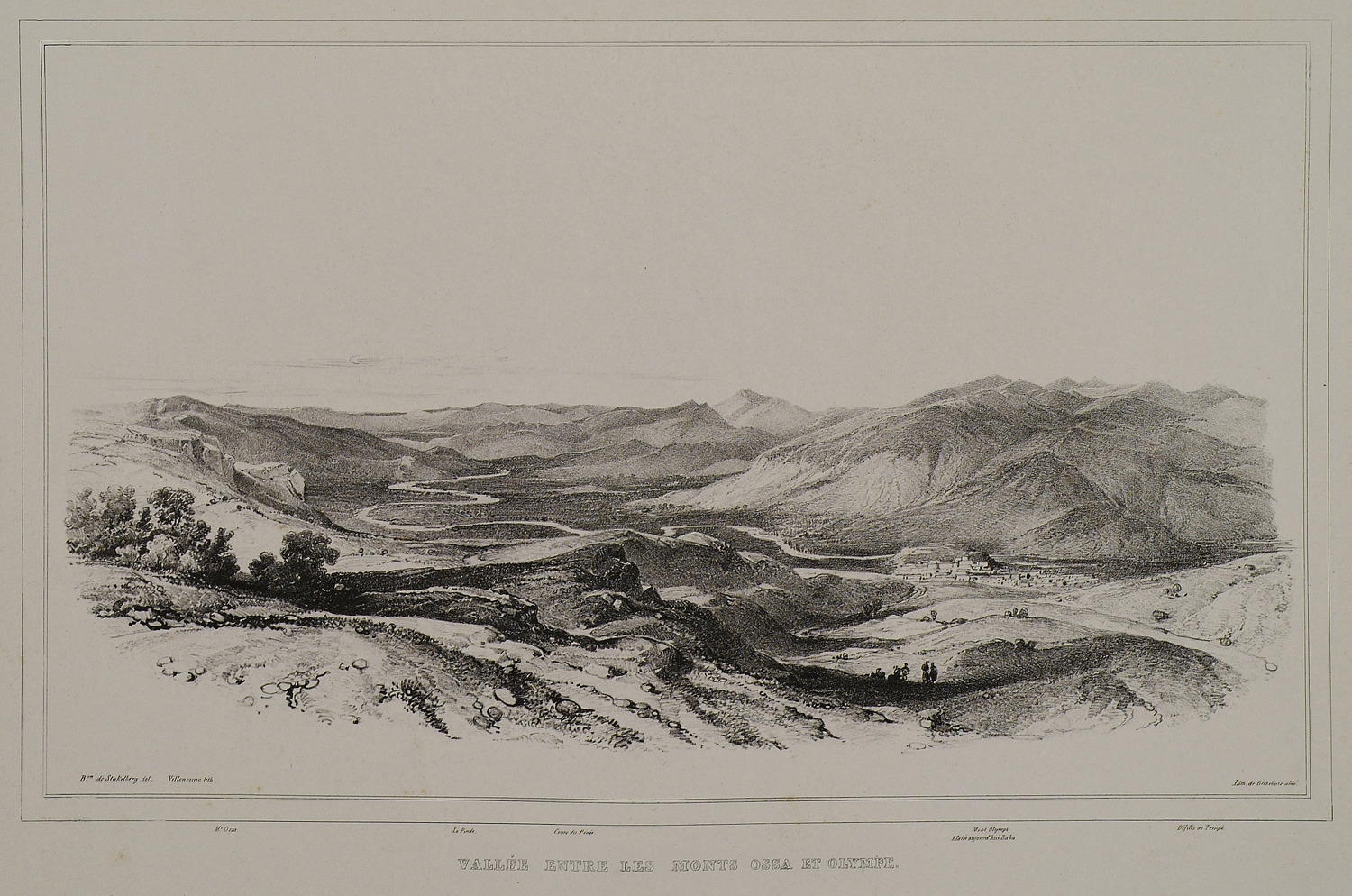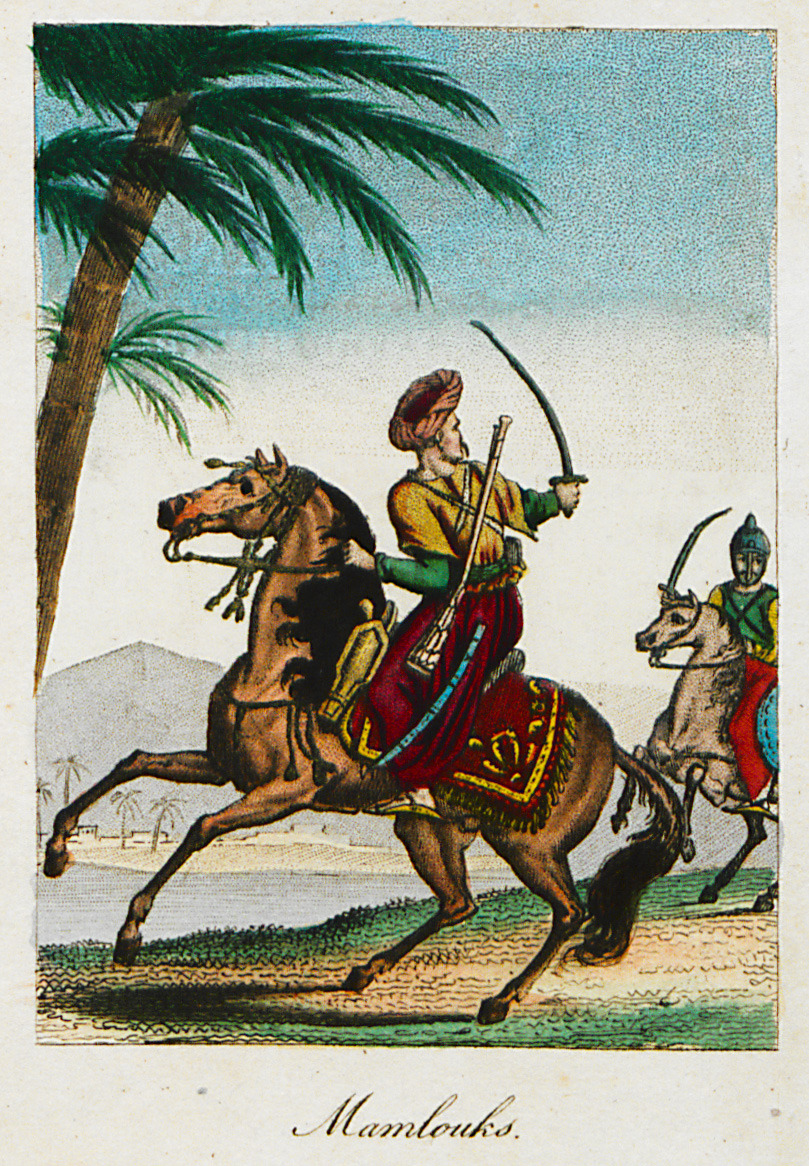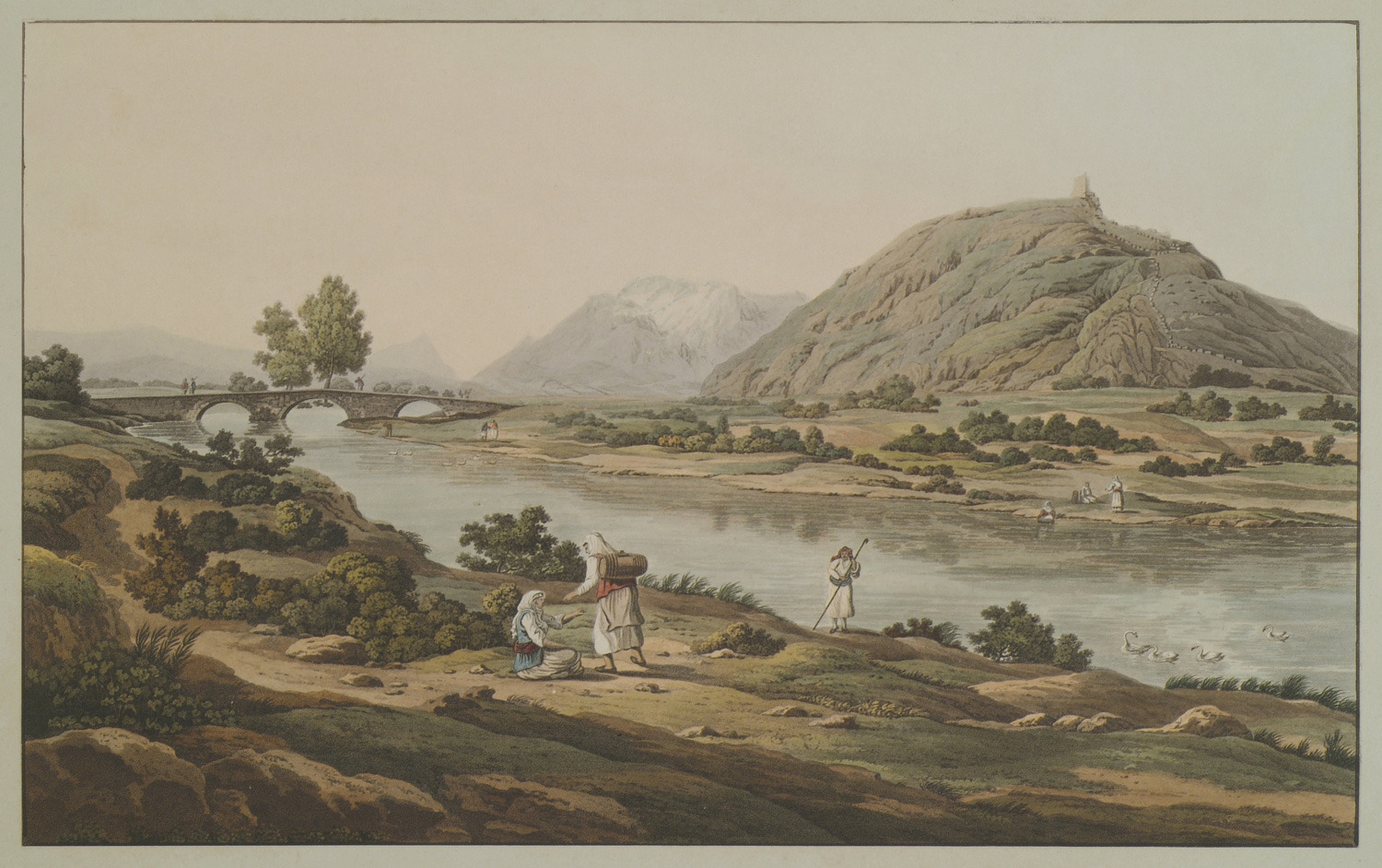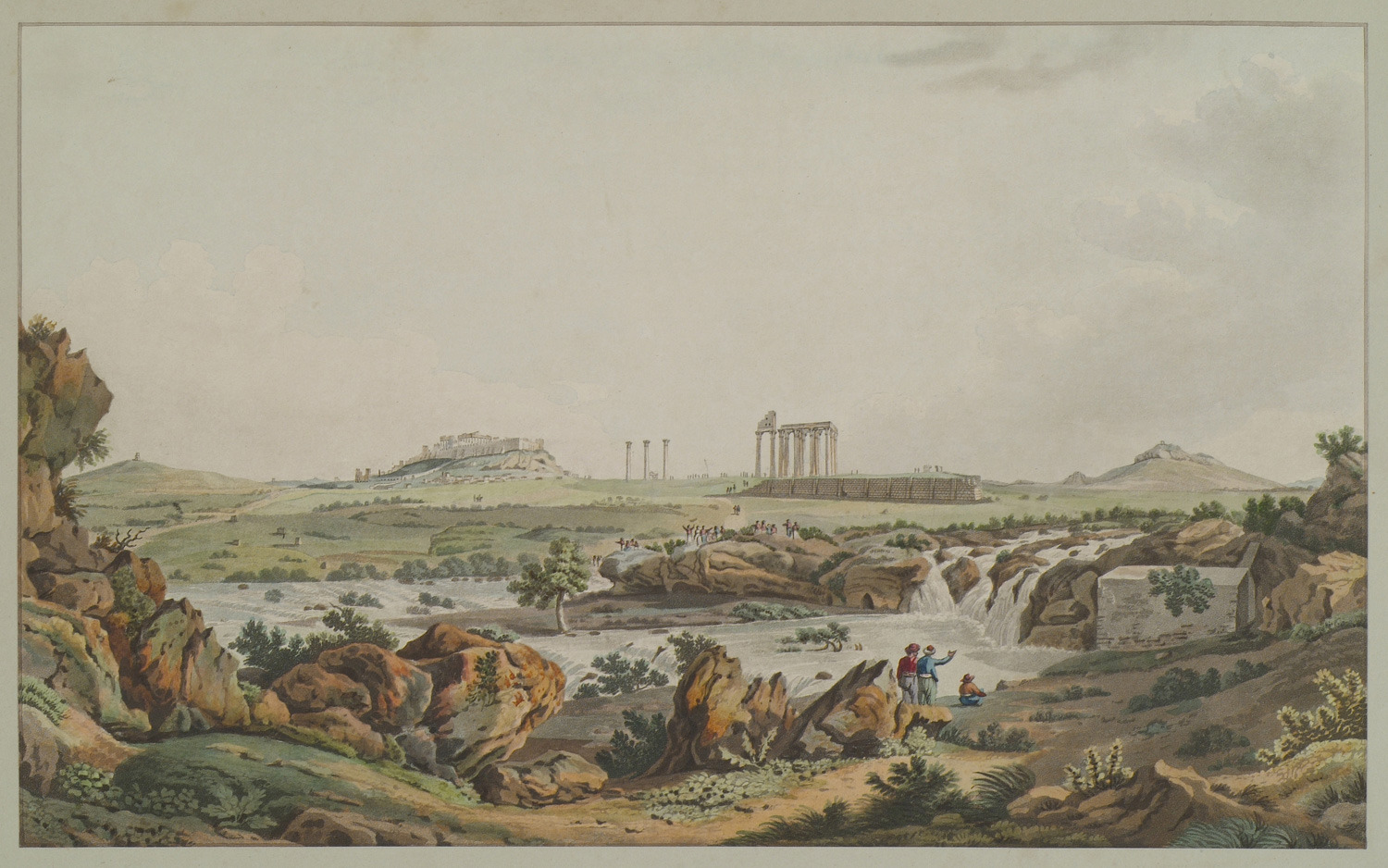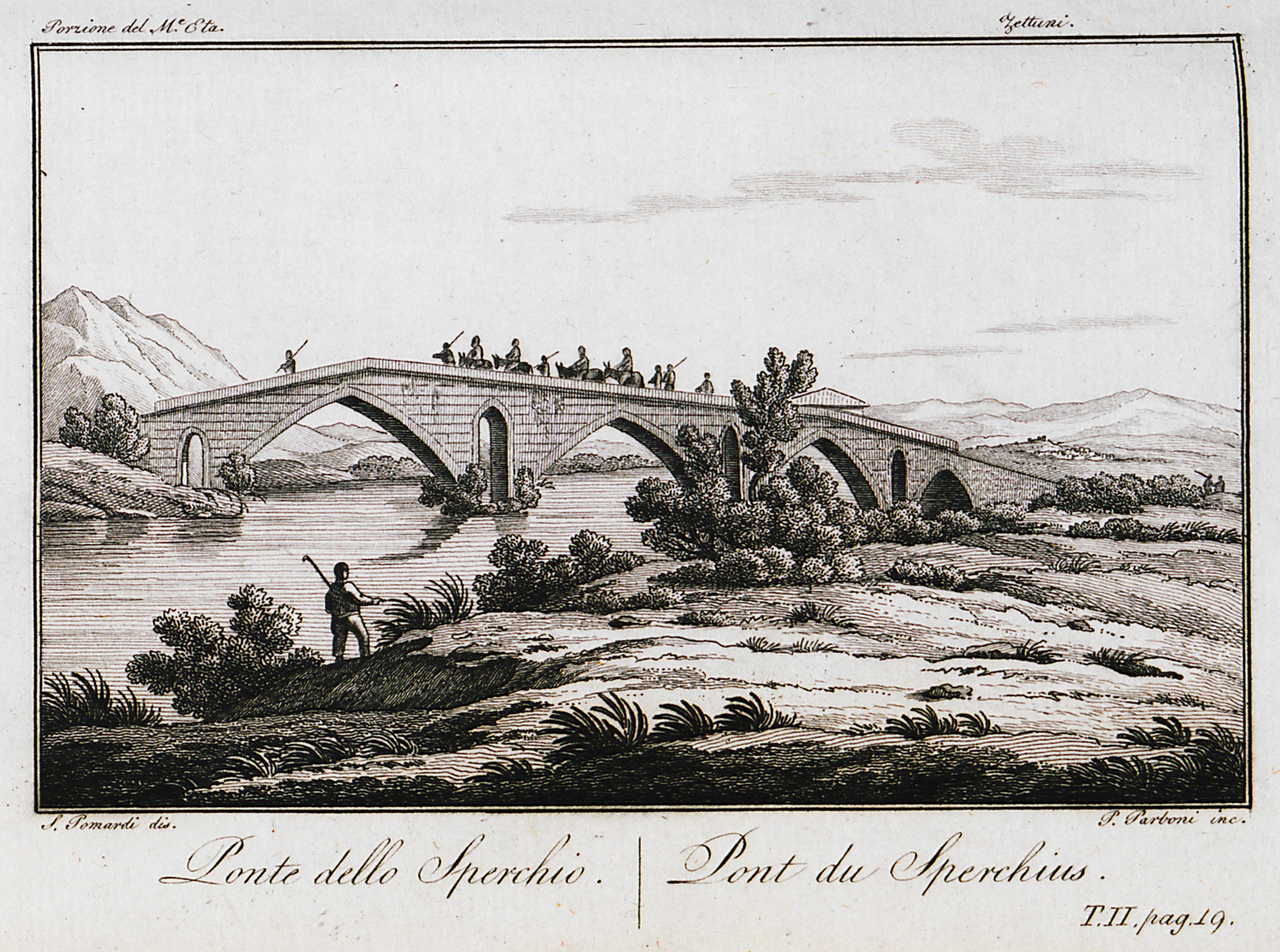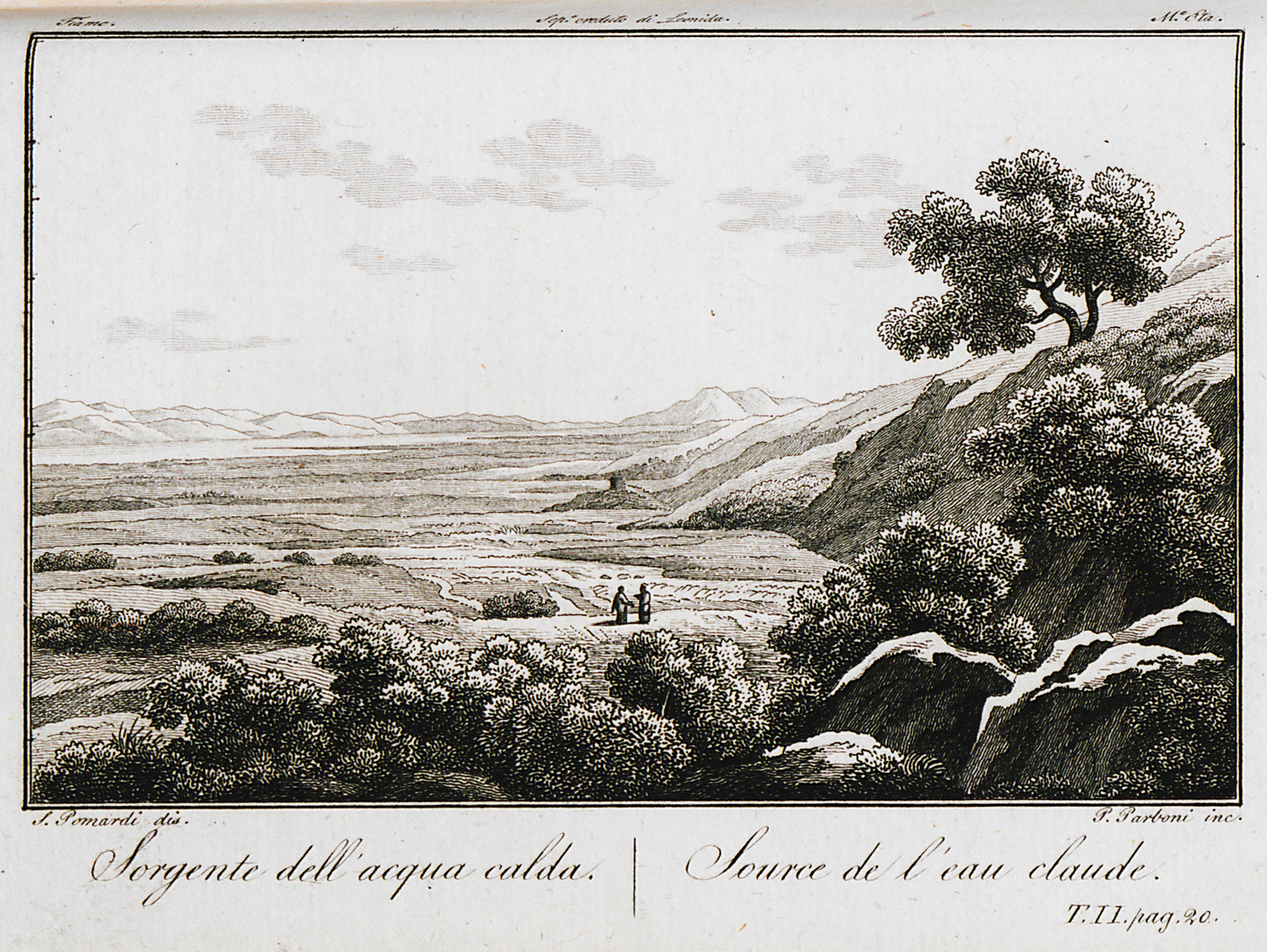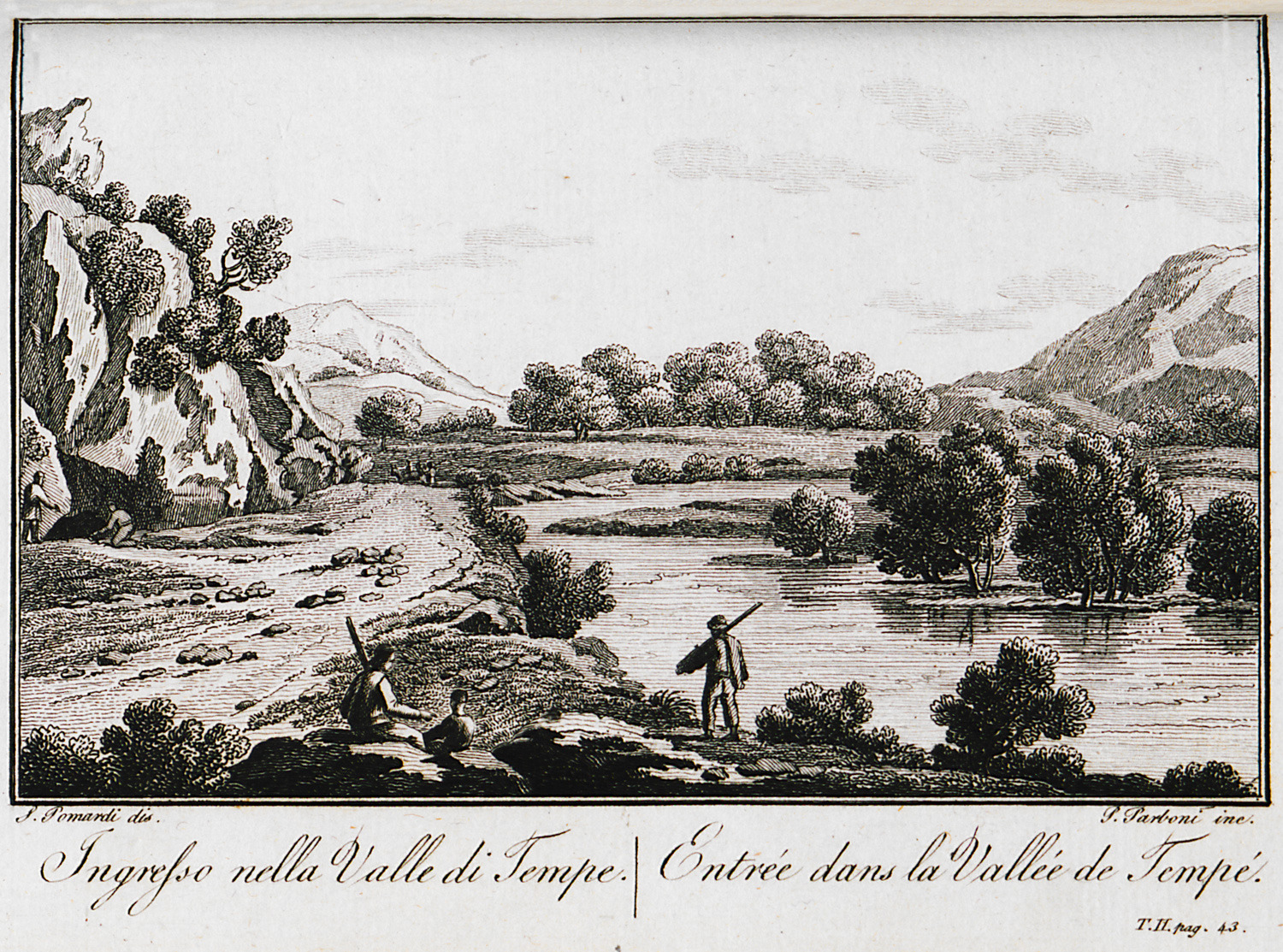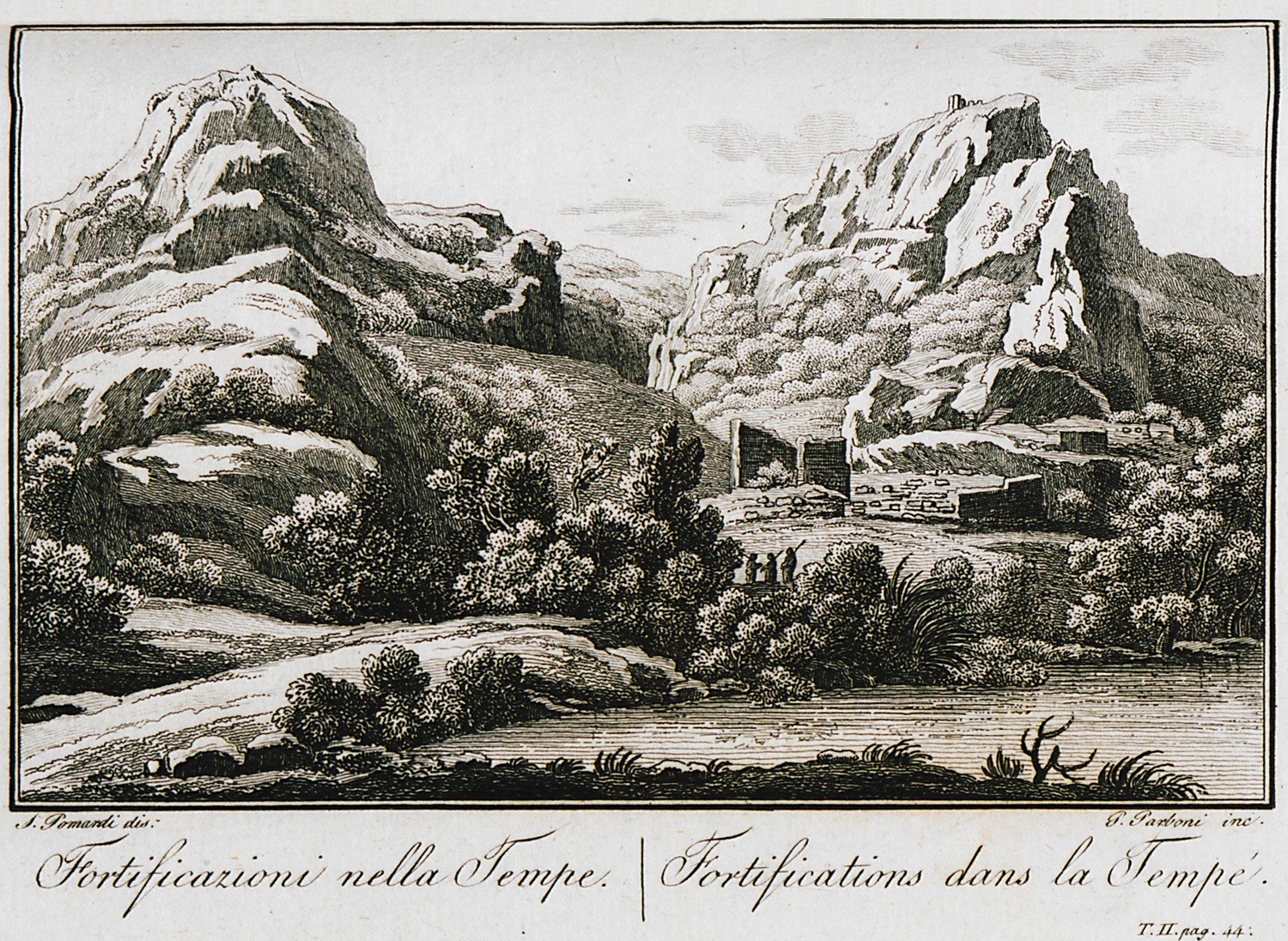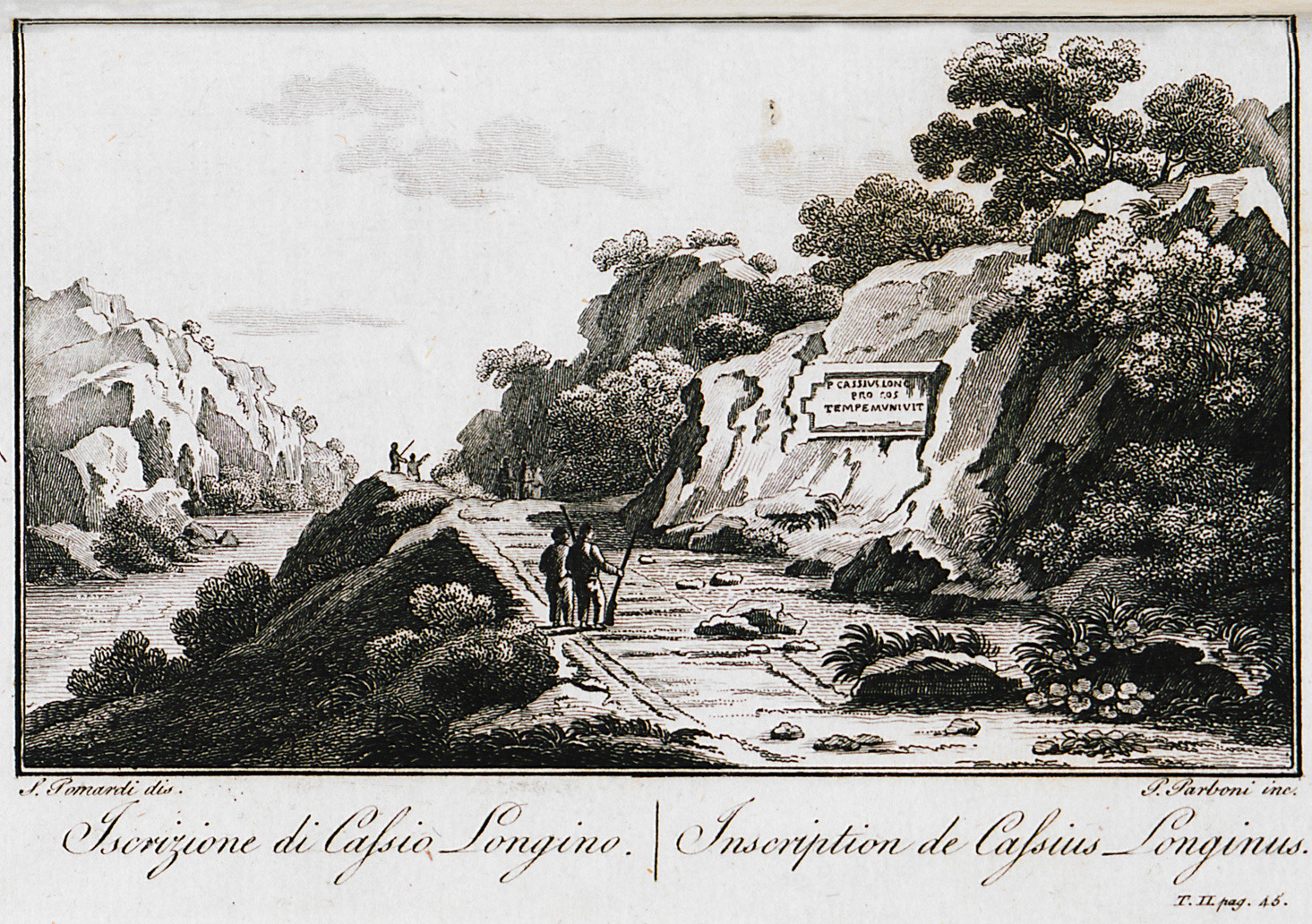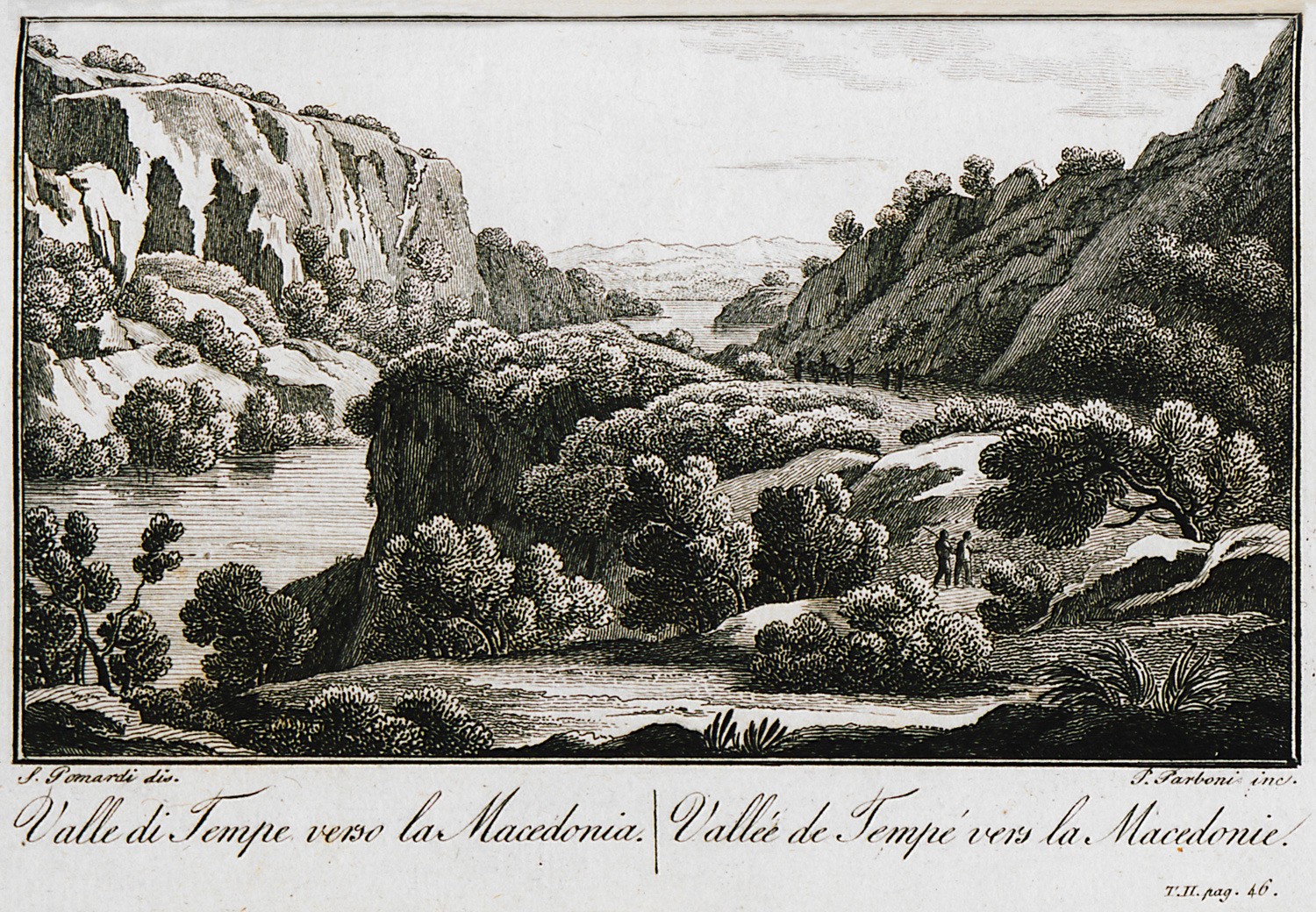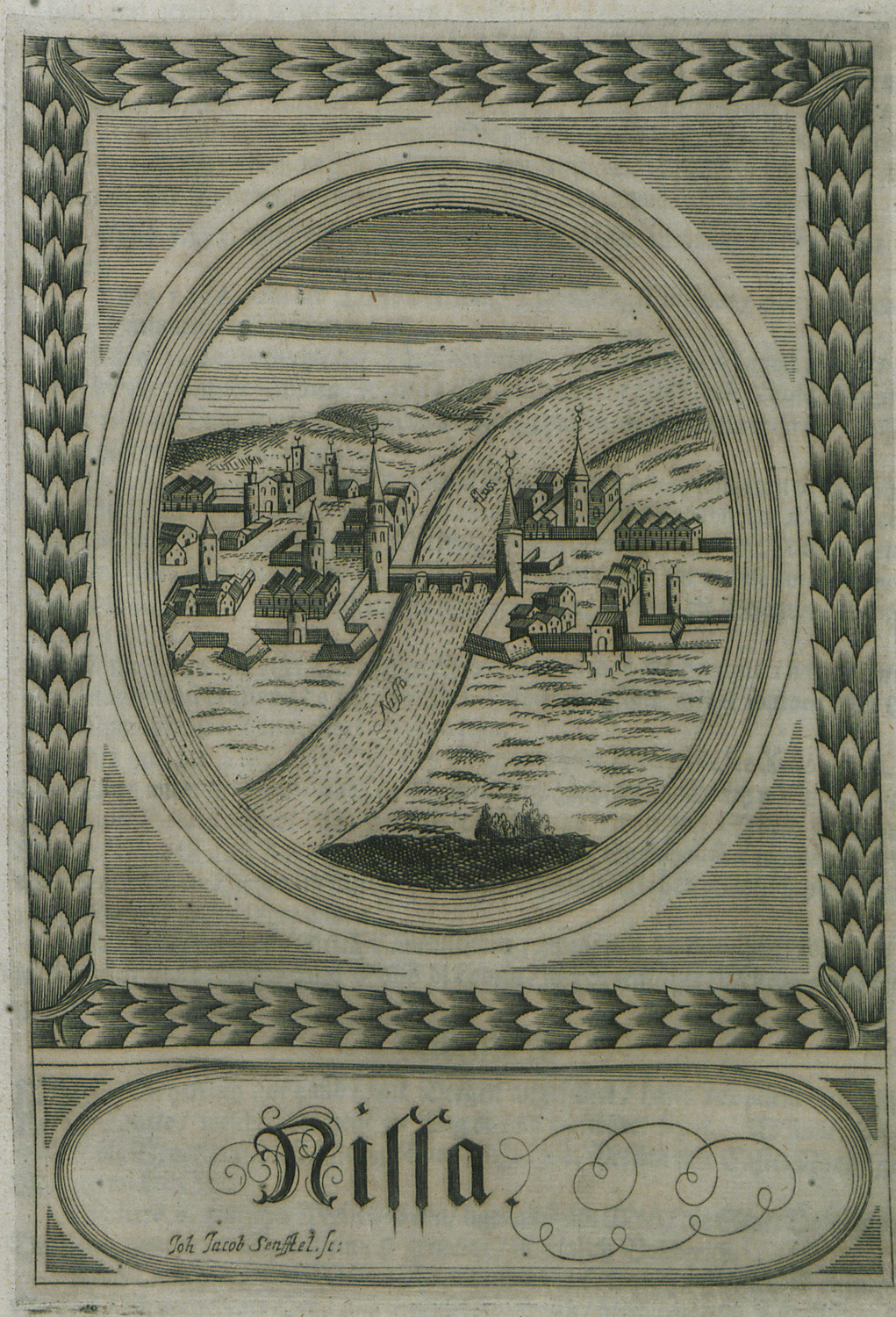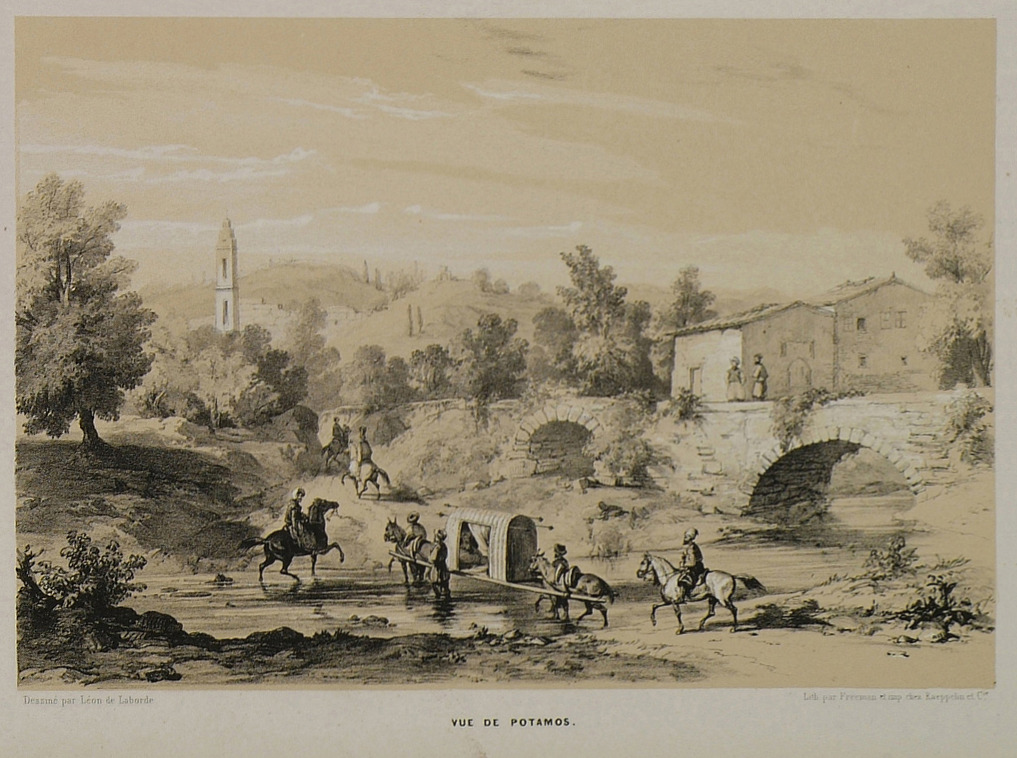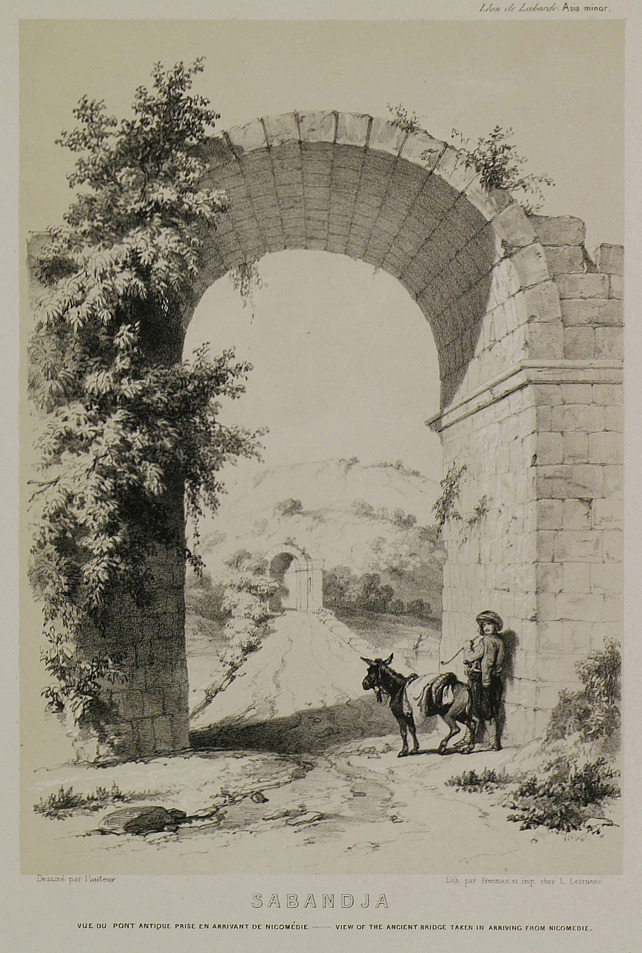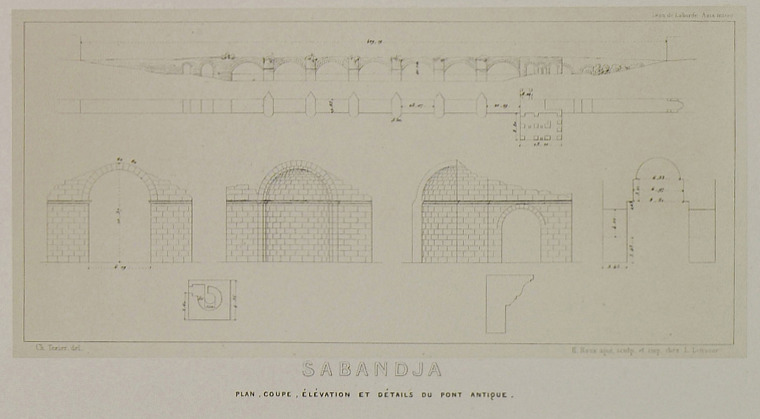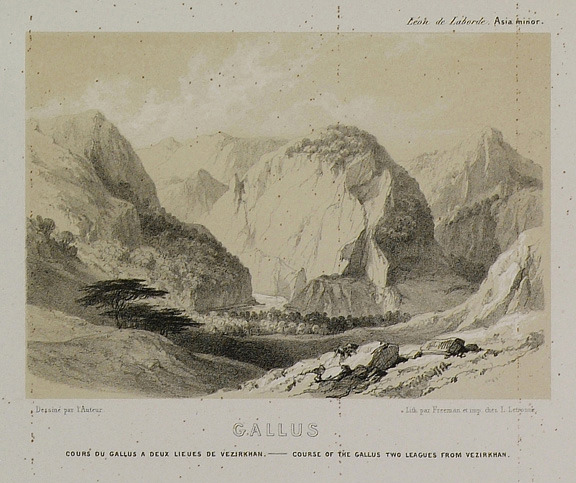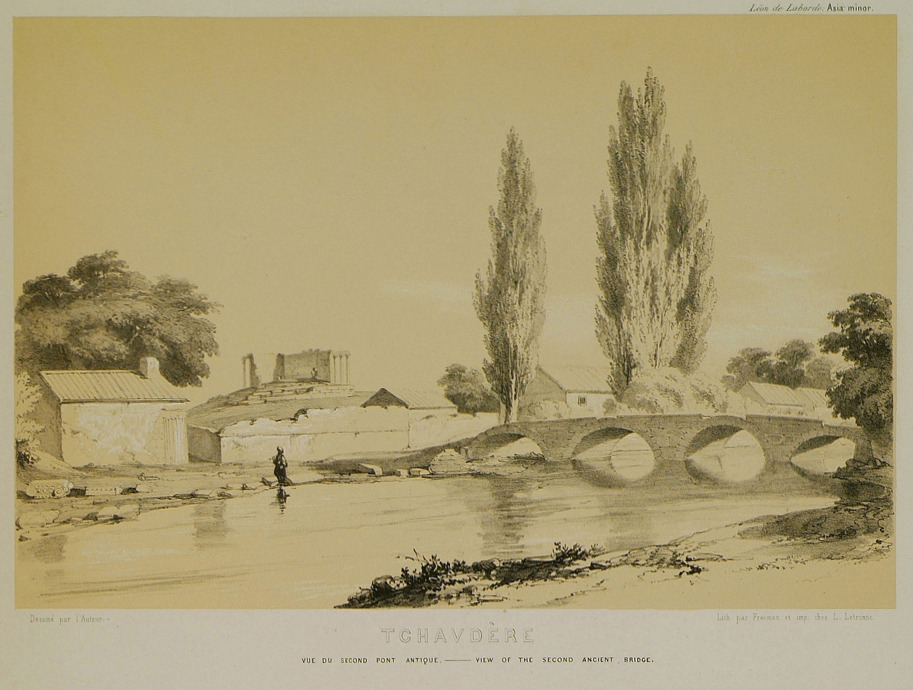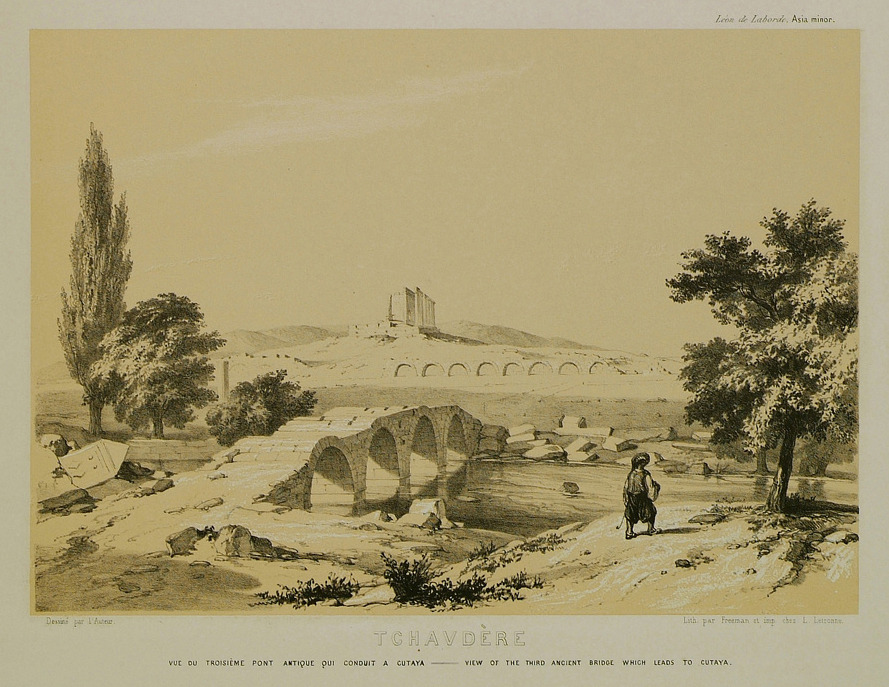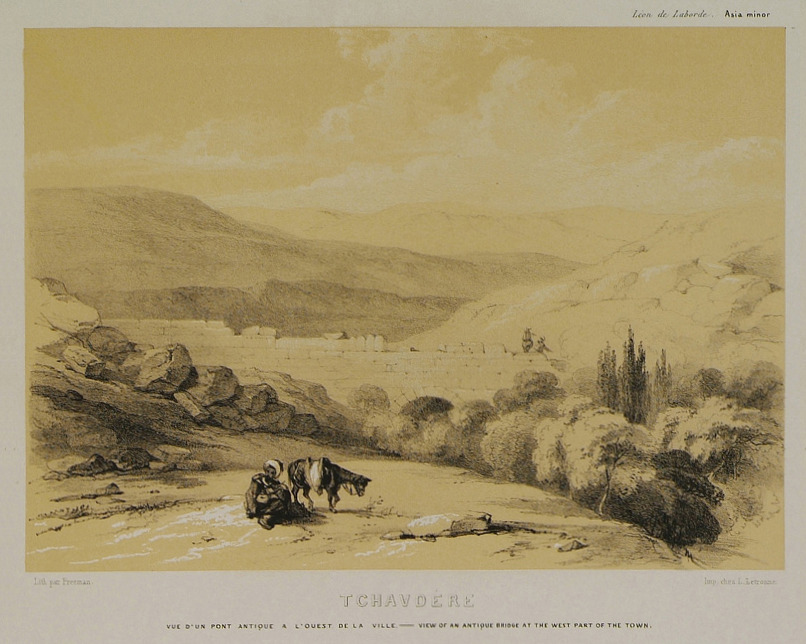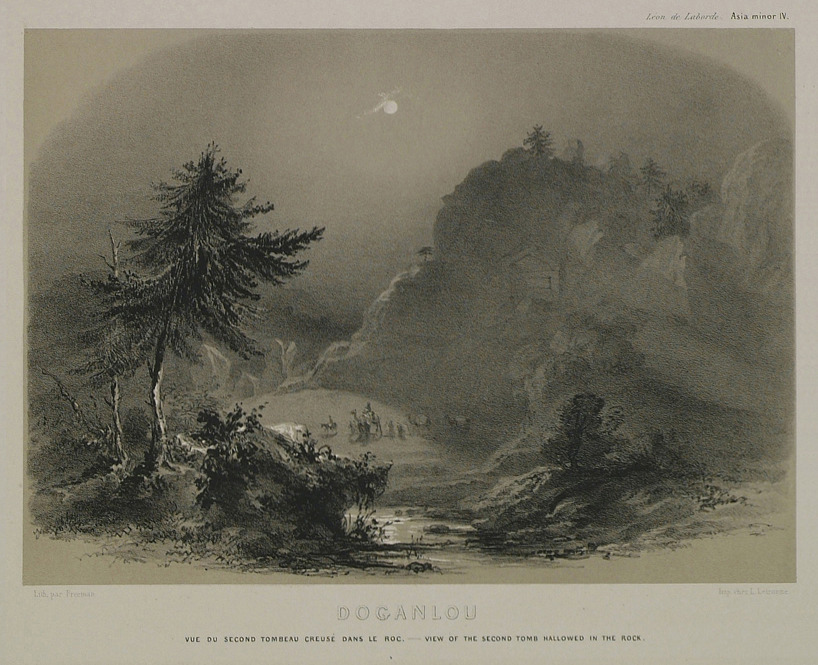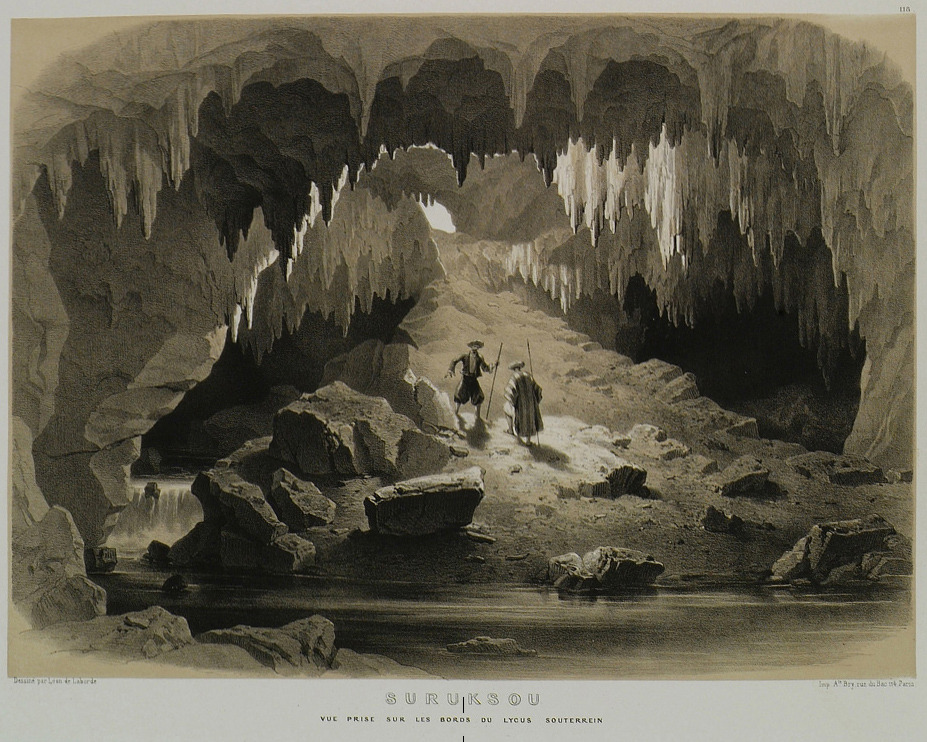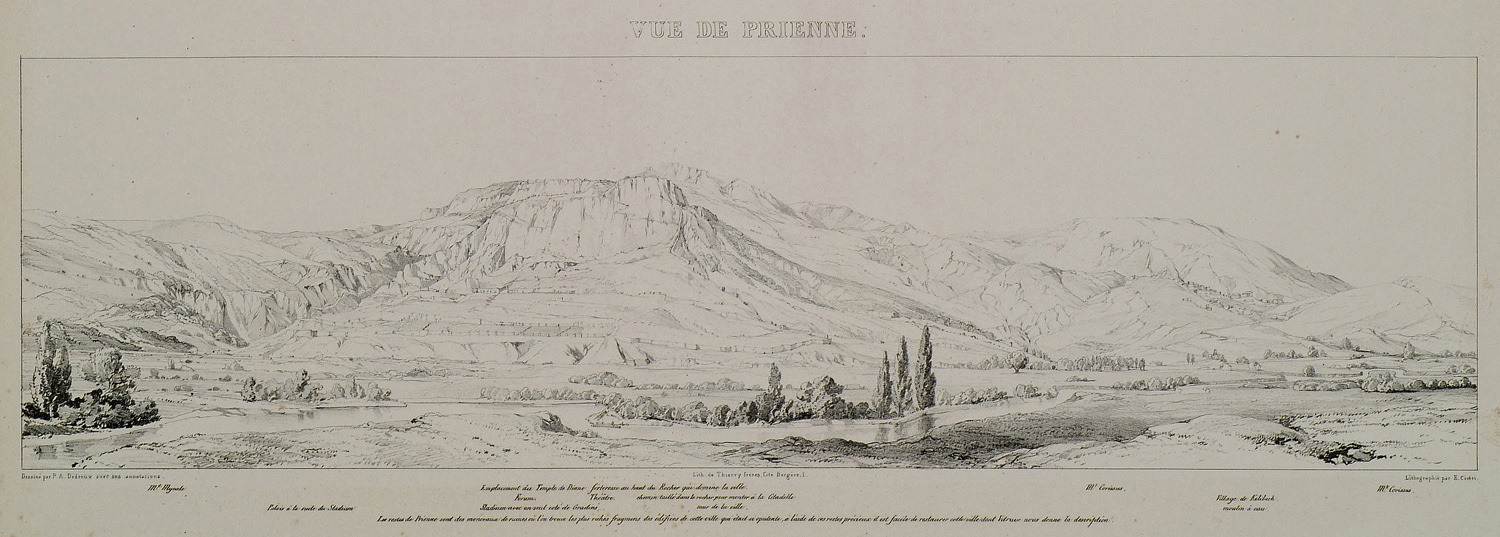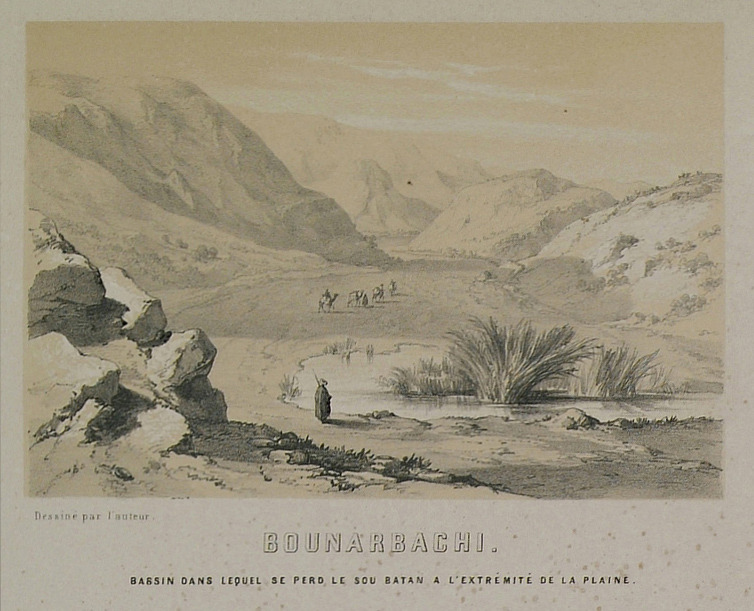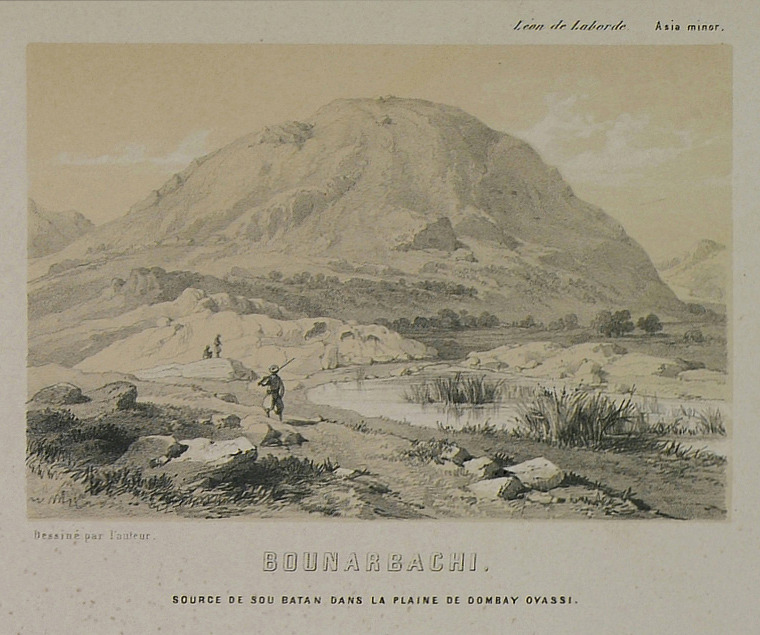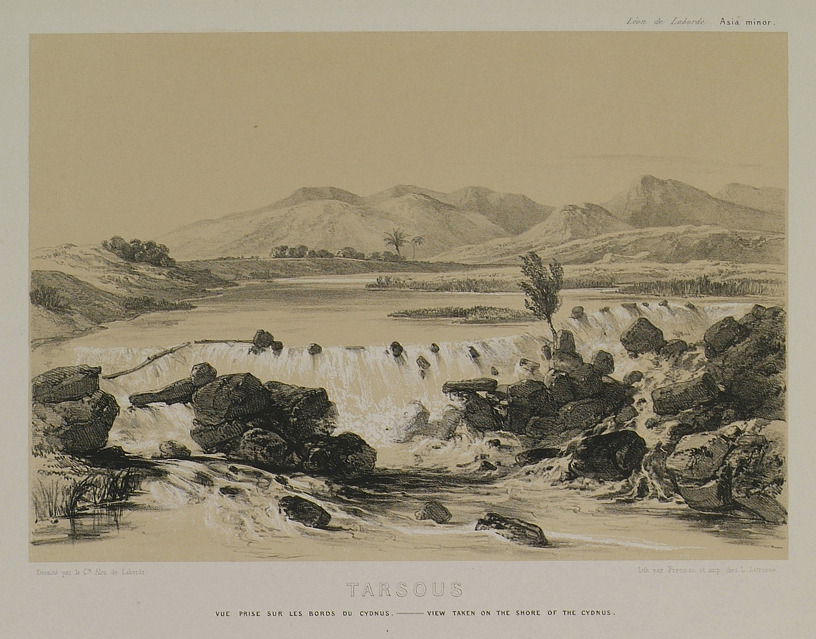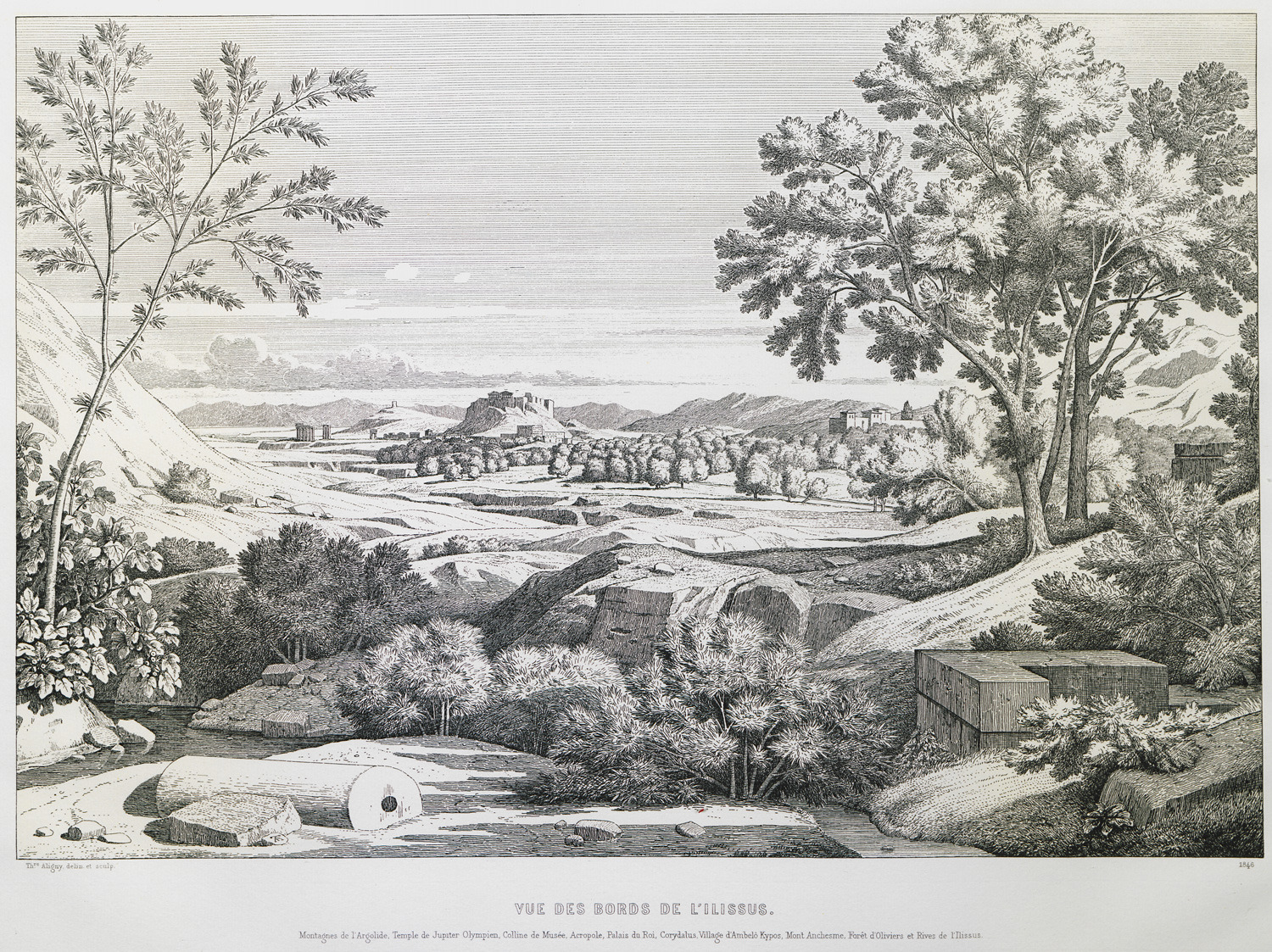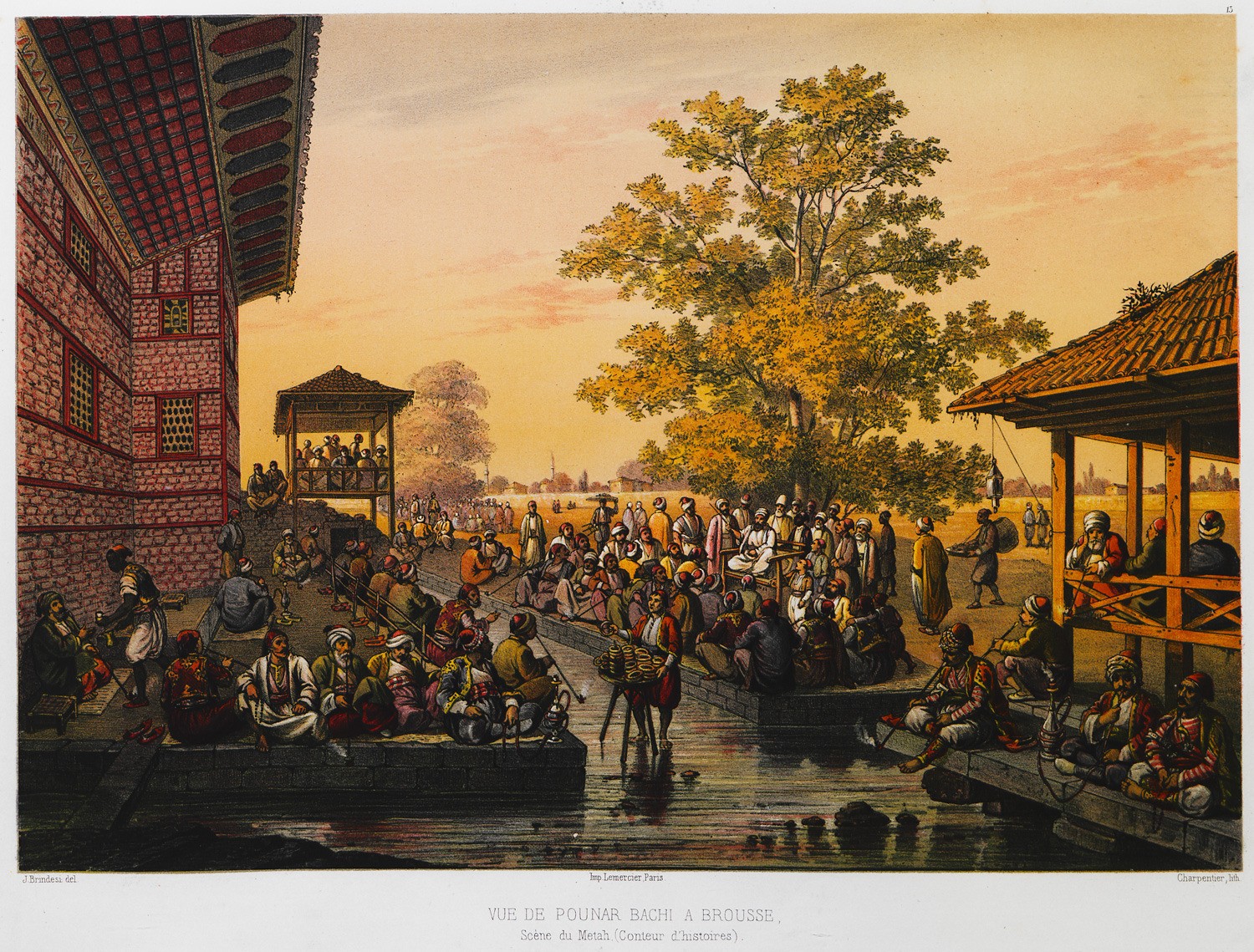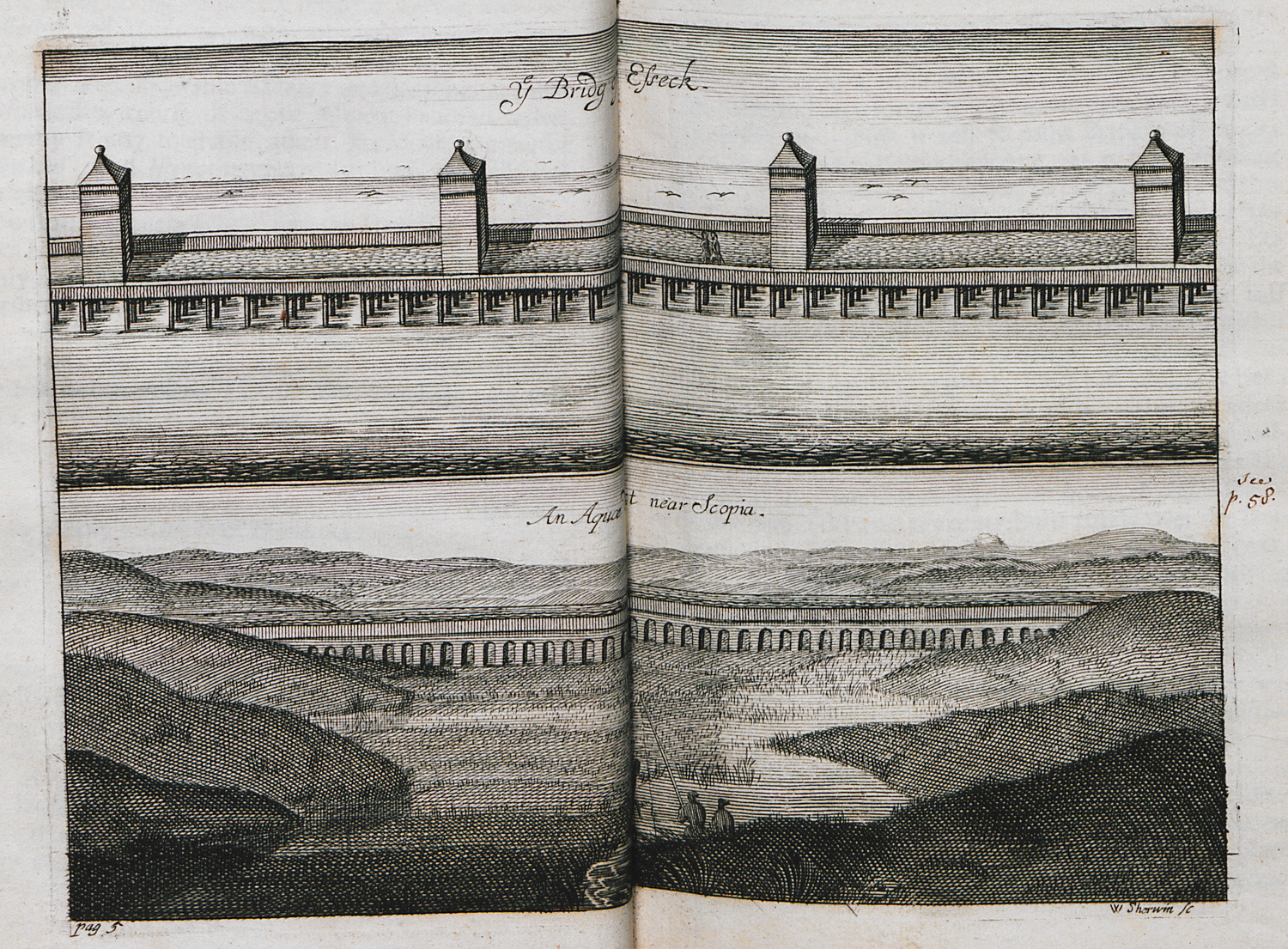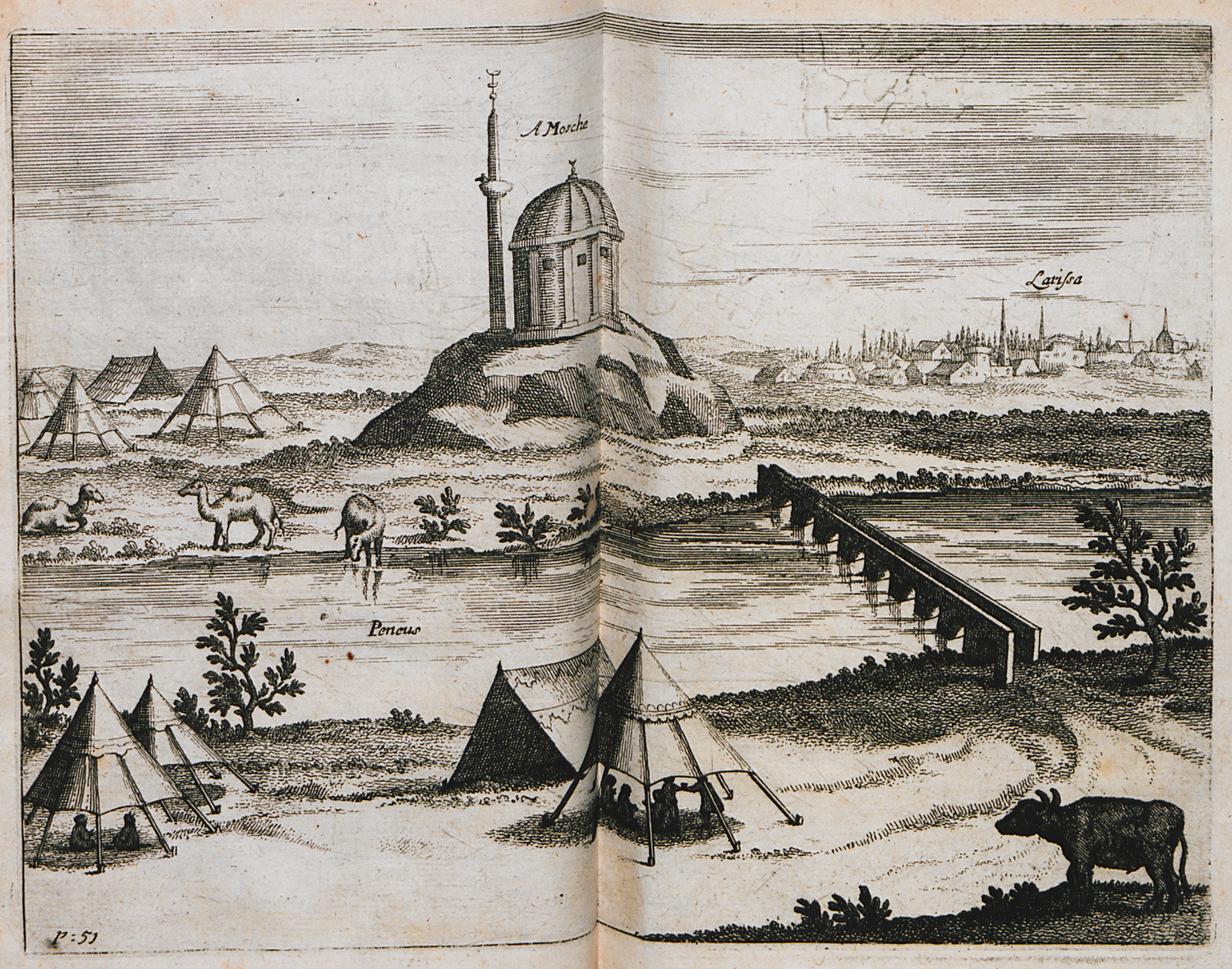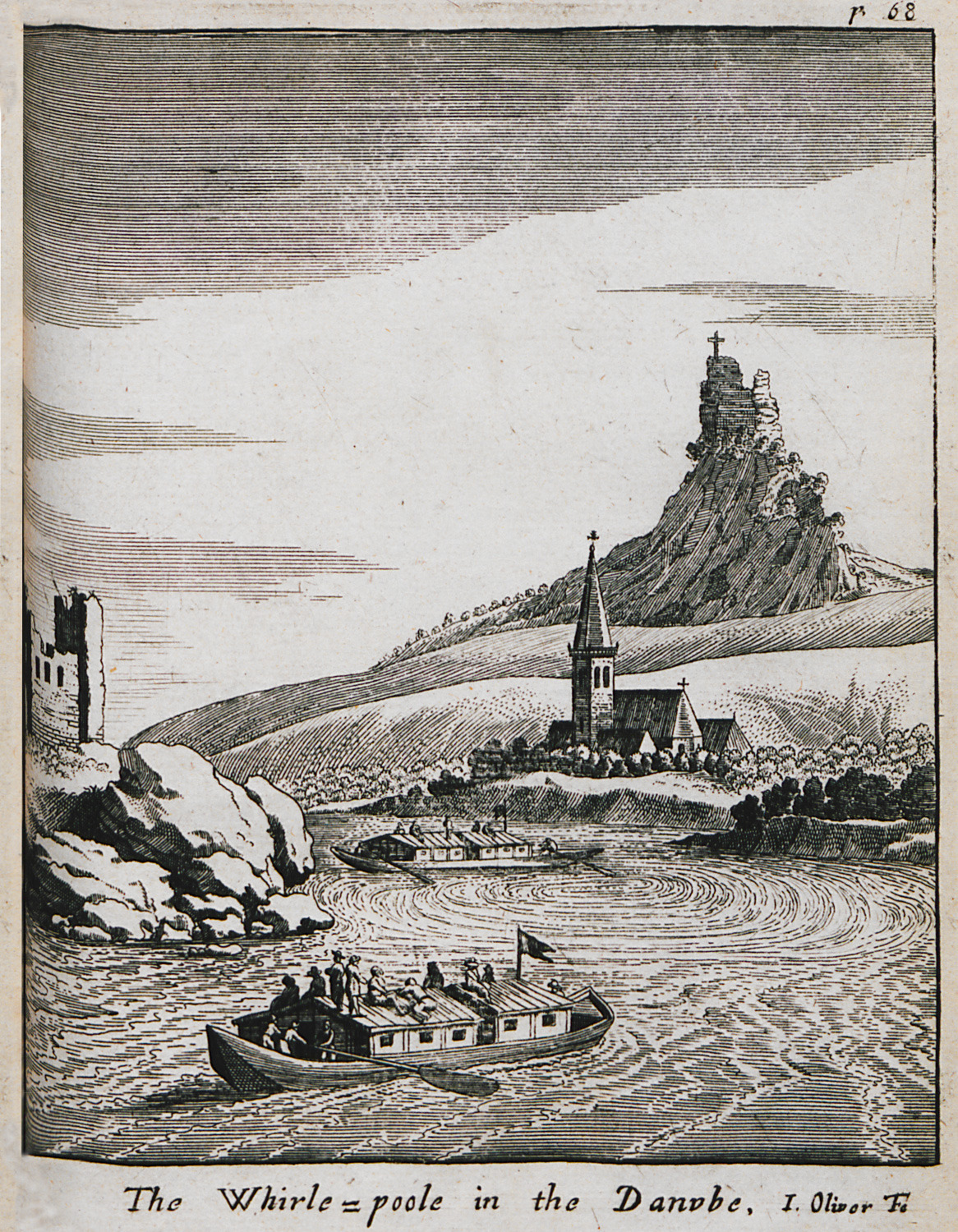Rivers (341 Subjects)
Landscape with Ilissus river. In the background, the Acropolis and the Temple of Olympian Zeus in Athens.
Landscape at the Vale of Tempi between Mount Olympus and Mount Kissavos.
Frontispiece to the fourth volume of the edition. Mamluk rider.
The site of the acropolis of Orchomenos in Boeotia, on Cephisus river, from the south. Arvanite women occupied in agricultural tasks.
View of the temple of Olympian Zeus and Ilissus river.
Stone bridge over Spercheios river.
The thermal springs of Thermopylae, at the outfall of Spercheios river into the Malian gulf.
Landscape at the Vale of Tempi, Thessaly.
Landscape near the ancient site of Gonnoi, at the western end of the Vale of Tempi. Due to its strong fortress, the location was also called Kondylos or Gonnokondylos.
Inscription etched on the rock at the Vale of Tempi, first century BCE: “L. CASSIUS LONGINUS PROCONS TEMPE MUNIVIT” that is, proconsul L. Cassius Longinus built a road or fortifications at Tempi. The rock bearing the inscription was destroyed during the construction of the national highway in 1959.
View of the northern part of the Vale of Tempi.
View of the city of Niš (Naissus), birthplace of Constantine the Great.
View of Caravan Bridge, Izmir.
View of the bridge of Justinian or Sangarius Bridge. The bridge is situated on Sangarius (Sakarya) river, near Sabanca lake, outside Adapazari, on the route from Iznik to Izmit. Today the bed of Sangarius lies to the east of the bridge, which only covers the smaller tributary Sark Deresi river (anc. Melas). On the foreground, the now-lost triumphal arch at the western end of the bridge.
Elevation, sections, details and plan of the bridge of Justinian or Sangarius Bridge. The bridge is situated on Sangarius (Sakarya) river, near Sapanca lake, on the outskirts of Adapazari, on the route from Iznik to Izmit. Today the bed of Sangarius lies to the east of the bridge, which only covers the smaller tributary Sark Deresi river (anc. Melas). Amogn the drawings, the now-lost triumphal arch at the western end of the bridge.
Landscape at Gallus river (today Kara Su), on the ouskirts of the town of Vezirhan.
One of the Roman bridges over Penkalas river in Çavdarhisar.
One of the Roman bridges over Penkalas river in Çavdarhisar.
One of the Roman bridges over Penkalas river in Çavdarhisar, Asia Minor, to the west of the city.
View of the rock-cut monument known as “small Yazılıkaya” in Doganli valley (today Yazılıkaya) near Eski Sehir. This ancient site is also called Midas City due to its plethora of Phrygian monuments, and forms part of the Phrygian valley.
The gorge of Lycus river (today Çürüksu). According to Herodotus, here the river disappears underground to resurface again furher away. Following Herodotus' text Laborde discovered this location near ancient Colossae and the Greek village of Chonae.
View of the remains of ancient Priene, with the sites of the ancient monuments and the modern settlement.
Landscape at the area of Pinarbasi, Denizli.
Landscape at the area of Pinarbasi, Denizli.
Landscape at Berdan river (ancient Cydnus) in Tarsus, Cilicia.
Landscape at Ilissus river. In the background, the Acropolis, the temple of Olympian Zeus, Philopappus monument on Mouseion Hill, the Royal Palace (today Parliament of Greece), and the neighbourhoods of Ambelokipoi and Korydallos.
Leisure scene at Pinarbasi, a neighbourhood of Bursa. A story teller entertains the public.
Suleiman bridge over Drava river in Osijek, Croatia. Skopje aqueduct near Skopje, Former Yugoslav Republic of Macedonia.
View of Larissa.
Whirlpool at Danube river.


